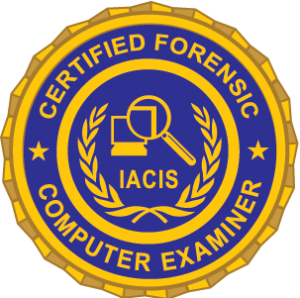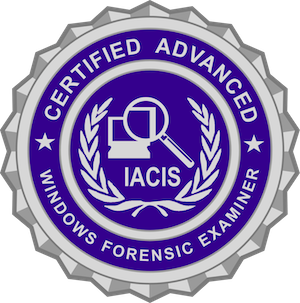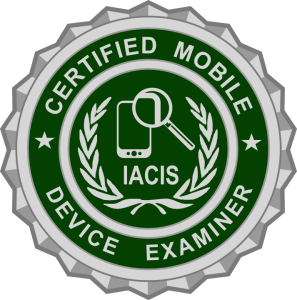See hotel information at the bottom of the page
Week 1
- BCFE: Basic Computer Forensic Examiner (week 1 of 2) $3,995
- CIFR: Cyber Incident Forensic Response (week 1 of 2) $3,695
- MDF: Mobile Device Forensics (session 1) $2,695
- AMDF: Advanced Mobile Device Forensics (session 1) $2,695
- AWFE: Advanced Windows Forensic Examiner $2,695
- OSINT: Open-Source Intelligence $2,695
- RCA: RAM Capture and Analysis $2,695 (Sold Out)
- FLEX: Forensic Linux Examination $2,695
- AX250: AXIOM Advanced Forensics with Window 11 (Magnet) $2,695
- CCO/CCPA: Cellebrite Certified Operator / Cellebrite Certified Physical Analyst (Cellebrite) $2,695
- MFSC 101: Best Practices in Mac Forensics (SUMURI) $2,695
- UAV: UAV (Drone) Forensics (Spyder) $2,695
- XRY: XRY and XRY Pro Certification (MSAB) $2,695
Week 2
- BCFE: Basic Computer Forensic Examiner (week 2 of 2)
- CIFR: Cyber Incident Forensic Response (week 2 of 2)
- MDF: Mobile Device Forensics (session 2) $2,695
- AMDF: Advanced Mobile Device Forensics (session 2) $2,695
- ASF: Applied Scripting Forensic Techniques $2,695
- CADET: Collecting and Admitting Digital Evidence at Trial $995
- MFTT: Mobile Forensic Tools and Techniques $2,695
- PLA: Preparing for Lab Certification (Monday-Wednesday) $750
- MDFL: Managing a Digital Forensics Laboratory (Thursday-Friday) $250
- CERT-F: Cellebrite Evidence Repair Technician (Cellebrite) $2,695 (Sold Out)
- MFSC 201: Advanced Practices in Mac Forensics (SUMURI) $2,695
- GK200 – Magnet Graykey Examinations (Magnet) $2,695
- AADF: Applied Advanced Database Forensics (Spyder) $2,695
Each year, professionals from around the world gather in Orlando for IACIS’s flagship training event — a comprehensive, immersive experience designed to sharpen your skills, expand your knowledge, and deepen your professional network. At the heart of the event is the internationally respected Basic Computer Forensic Examiner (BCFE) course, a rigorous, hands-on training program that lays the foundation for excellence in digital forensics. Whether you’re new to the field or advancing your expertise, this course equips you with real-world skills and prepares you to earn IACIS Certified Forensic Computer Examiner (CFCE) certification — a mark of distinction recognized globally.
In addition to the BCFE, the Orlando event also features IACIS Specialized Courses — advanced training programs designed for professionals ready to go deeper into focused areas of digital forensics. Courses like Advanced Windows Forensic Examiner and Mobile Device Forensics are not only technically intensive, but also prepare students for certification as a Certified Advanced Windows Forensic Examiner (CAWFE) or IACIS Certified Mobile Device Examiner (ICMDE) — with the certification cost included in the course fee. These specialized tracks offer a powerful way to expand expertise, elevate professional credentials, and stay on the cutting edge of the field.
IACIS instructors bring real-world experience to every course. Each trainer is actively engaged in the field of digital forensics and holds one or more advanced IACIS certifications, including the above-mentioned CFCE, CAWFE, and ICMDE. Their hands-on expertise ensures that every lesson is practical, relevant, and immediately applicable to the challenges examiners face today.
Our commitment to excellence doesn’t stop at instruction. IACIS training materials are reviewed and updated annually to reflect the latest tools, techniques, and legal considerations in digital forensics. This dedication keeps our courses at the forefront of the profession — so you leave Orlando equipped with knowledge that’s not only current, but trusted across the globe.
Beyond the classroom, the Orlando event offers something just as valuable: connection. Attendees gain access to leading instructors, seasoned forensic practitioners, and peers from law enforcement, government, and private sectors — all committed to advancing the profession. Set in a vibrant and convenient location, the 2026 event combines top-tier instruction with the opportunity to build lasting relationships, discover new tools and techniques, and be part of a trusted global community. Don’t miss your chance to invest in your future and accelerate your digital forensics career.






